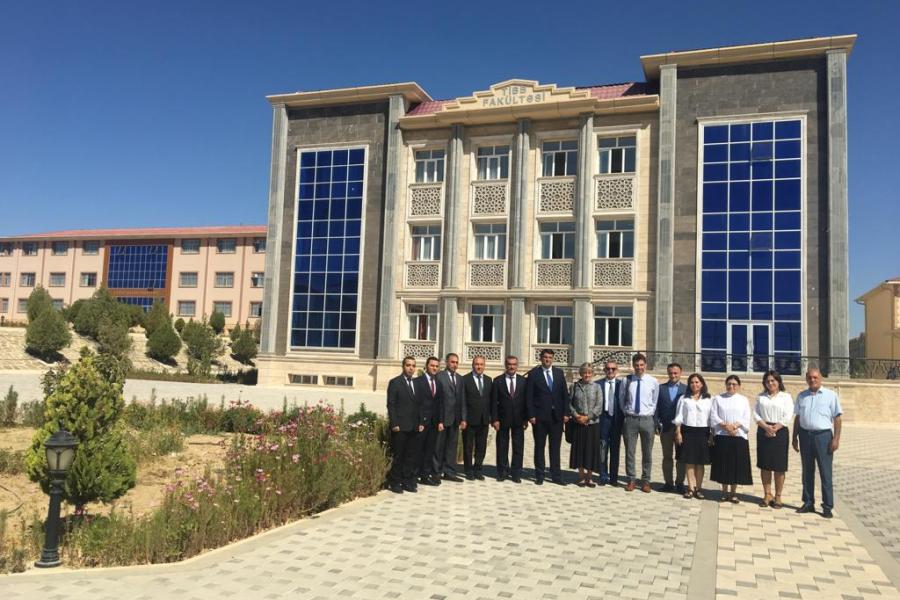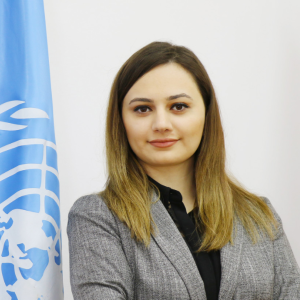WHO continues work for supporting Rehabilitation and Assistive Technology services in Azerbaijan
17 October 2022
- WHO Regional Office for Europe concluded its mission to provide technical support to strengthen Rehabilitation and Assistive Technology (AT) in Azerbaijan with the participation of international experts in these areas.

The objectives of the mission were to respond to the interest of the Government in scaling access to rehabilitation and AT services, expressed by the Ministry of Health, Ministry of Labour and Social Protection of the Population, and State Agency on Mandatory Health Insurance.
The mission assessed the current Rehabilitation and AT situation in Azerbaijan using WHO standardized tools Systematic Assessment of the Rehabilitation Situation (STARS) and Assistive Technology Capacity Assessment (ATA-C) and provided technical assistance on the integration of Rehabilitation & AT in the coordinated development of multisectoral cooperation and (Inter) Departmental Action Plan within Azerbaijan Government.
During the mission, the experts held meetings with different government authorities and visited rehabilitation facilities in Baku, Ganja, Naftalan, Sheki, Gabala, Nakhchivan, and other regions of Azerbaijan. Focus group discussions were held with the participation of representatives from relevant ministries and government agencies on leadership, governance, emergency medical care, human resources for health, finance, information systems, and service delivery. Further engagements were also held with people who need access to vital rehabilitation and AT services as well as with groups of service providers. During these engagements, preliminary results of the assessments were introduced, and feedback was collected. At the end of the mission, the experts provided recommendations from the assessments that can aid planning for further development of the AT and Rehabilitation strategy to elaborate the National Roadmap Action Plan for Azerbaijan.
Rehabilitation is about helping children and adults to be as independent as possible in everyday activities and enables participation in education, work, recreation, and meaningful life roles such as taking care of family. Similarly, access to vital AT products can help people see and hear better; it can help people with intellectual and cognitive disabilities to interact more effectively with others, and it can support people with psychosocial disabilities to manage and work through difficult times. Assistive technology helps people to realize their rights in tangible everyday ways.
Azerbaijan is committed to strengthening its Rehabilitation and AT sectors and is planning to develop a health roadmap under the leadership of the Ministry of Health and the Ministry of Labor and Social Protection of Population. WHO Country Office in Azerbaijan continues to provide technical support to the Ministry of Health and the Ministry of Labour and Social Protection of Population in this effort.
In the past two years, WHO has been engaging in multiple Rehabilitation and AT activities such as a rapid-AT Assessment (r-ATA) household survey that collected information from 5,597 respondents across 1,156 households in eight economic zones of the Republic of Azerbaijan. The results of the r-ATA survey were extremely useful in providing key information about the AT demand in the country.
On a global scale, WHO is implementing ambitious initiatives to strengthen Rehabilitation in health systems and scale access to AT products and services. These initiatives aim to improve people’s functioning, leading to greater participation and heightened quality of life, especially for persons with disabilities or non-communicable diseases, and for healthy aging.


